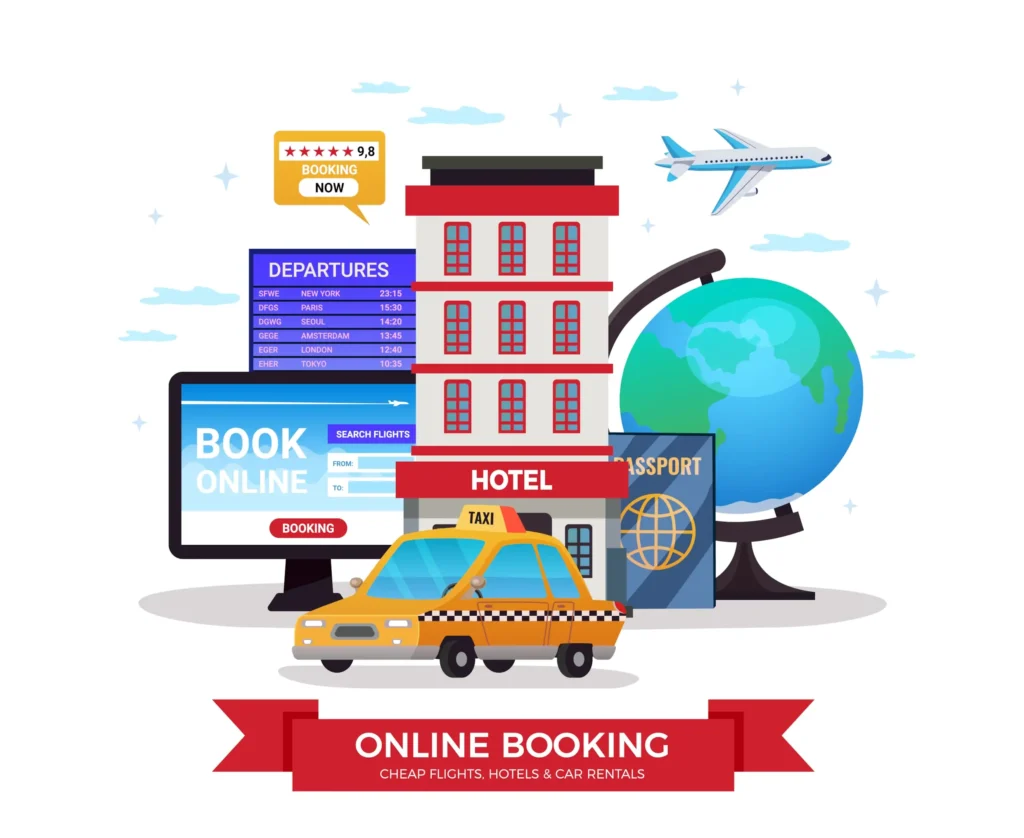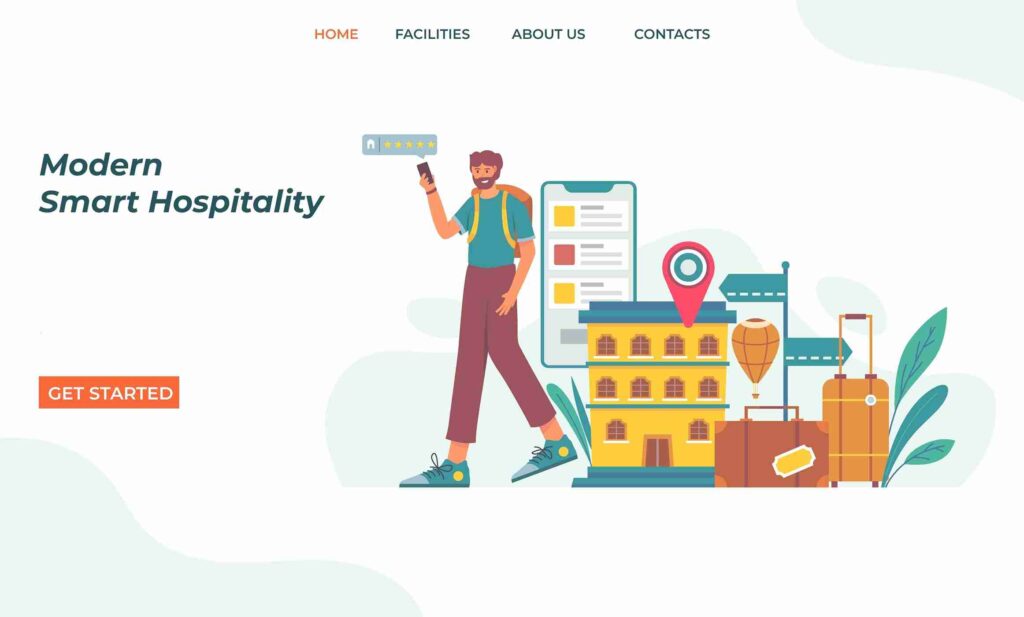Technology is a game-changer in today’s fast-paced hospitality and tourism industry, reshaping how we travel, experience destinations, and manage hospitality services. As one of the world’s most dynamic industries, tourism constantly evolves, driven by advancements that improve guest experiences, enhance operational efficiency, and create new career opportunities.
Technology impacts all areas of the industry—from hospitality management and marketing to customer service and operations management—allowing professionals to deliver better, more personalized services.
General Hospitality Program Requirements Hospitality management program admissions require an Ontario Secondary School Diploma (OSSD) or equivalent, with a grade 12 English credit. A grade 12 mathematics course may also be required.
A Hospitality and Tourism Management Diploma from Central College in Mississauga prepares students to thrive in this tech-savvy environment by integrating hands-on learning with digital skills. In this post, we’ll explore how technology influences the hospitality and tourism industry, the skills students need to succeed, and how programs like Central College equip graduates to excel in a tech-centric landscape.
The Impact of Technology on the Hospitality and Tourism Industry

The adoption of technology in the hospitality industry and tourism has revolutionized operations and the overall guest experience.
With the rise of online booking platforms, social media marketing, and advanced workplace systems, guests can expect seamless travel arrangements and personalized services. Technology also supports risk management principles, ensuring operations are safer, more efficient, and compliant with legal obligations.
Key Areas of Technological Influence
- Guest Experience: Technology allows for customized experiences through mobile apps for self-check-in at hotels or personalized recommendations based on past preferences.
- Operational Efficiency: Digital systems streamline hospitality operations, such as room management and food service, reducing errors and maximizing resources.
- Global Reach: Technology enables international tourism companies to attract customers worldwide, opening new markets and creating exciting career opportunities for tech-savvy professionals.
Technology in Hospitality Management Programs

Incorporating technology into hospitality management programs ensures that students gain hands-on experience with the latest tools and systems used in the industry. Programs like Central College’s hospitality management program emphasize practical learning and prepare students for real-world applications, helping them develop management skills essential for the modern workplace. Through practical labs and experiential learning, students become familiar with key technologies and acquire transferable leadership skills applicable across various roles.
Key Skills Developed through Technology in Hospitality Programs
- Business Management Skills: Students learn to use tools for inventory, finance, and HR management, which are essential for maintaining efficient hospitality services.
- Market Research: Digital platforms enable market research, allowing students to analyze trends and make data-driven decisions that enhance service offerings.
- Interpersonal and Teamwork Skills: Technology is central to collaborative work, helping students develop teamwork skills while working on shared projects and presentations.
These skills ensure that students are well-prepared to adapt to technological advancements in the hospitality and tourism industry, meet employer expectations, and contribute to effective management practices.
Emerging Technologies in the Hospitality and Tourism Industry
As technology evolves, new tools continue to shape the industry, bringing innovative ways to enhance operations, customer service, operations management and marketing. Here are some of the latest advancements influencing the tourism and hospitality landscape:
1. Artificial Intelligence (AI) and Automation
AI and automation streamline repetitive tasks, allowing professionals to focus on guest relations and decision-making. Automated booking systems, for instance, allow guests to make reservations effortlessly, while AI-powered chatbots handle routine inquiries.
Benefits of AI and Automation:
- Efficient Customer Service: AI chatbots respond immediately to guest inquiries, enhancing customer satisfaction and improving work performance.
- Data Analysis: AI-powered analytics tools assist in market research by identifying trends in guest preferences and optimizing marketing strategies.
- Risk Management: Automation ensures compliance with risk management principles by tracking inventory, schedules, and maintenance.
2. Mobile Technology and Digital Check-In
Mobile technology has changed how guests interact with hospitality services, offering convenience and control. With mobile apps, guests can check-in, order room service, or schedule housekeeping from their smartphones, enhancing convenience and personalization.
Key Mobile Technology Benefits:
- Streamlined Check-In: Digital check-in reduces wait times and provides a hassle-free experience, improving guest satisfaction and easing staff workloads.
- Upselling Opportunities: Mobile technology offers hotels a platform to promote additional services, increasing revenue and enhancing the guest experience.
- Enhanced Security: Mobile keyless entry systems enhance security and reduce the risk of lost keys, aligning with risk management principles.
3. Virtual Reality (VR) and Augmented Reality (AR)
VR and AR transform how destinations and hospitality properties are marketed, offering potential guests immersive previews of locations, rooms, and attractions. VR/AR applications allow users to “experience” a place before visiting, creating more engaging marketing content.
Uses of VR and AR in Hospitality:
- Virtual Tours: VR enables prospective guests to take virtual tours of hotels, restaurants, or cruise ships, enhancing booking decisions.
- Interactive Maps: AR provides real-time information on attractions, restaurants, and transportation, helping tourists navigate new locations.
- Enhanced Guest Experiences: AR-powered guides at hotels and tourist destinations provide information on local attractions and dining options, enhancing the overall visitor experience.
4. Sustainability and Corporate Social Responsibility (CSR) Technologies
Sustainability is increasingly important in the hospitality and tourism industry, with technology offering new ways to reduce environmental impact and promote corporate social responsibility. Hotels and resorts use technology to manage energy, reduce waste, and track water usage.
Technology for Sustainability:
- Energy Management Systems: Smart thermostats and energy-efficient lighting reduce consumption, lower costs, and align with CSR goals.
- Waste Reduction: Digital inventory systems help manage food supplies more effectively, reducing food waste and improving food safety.
- Guest Awareness: Eco-friendly apps and in-room displays educate guests on sustainability initiatives, encouraging environmentally responsible behavior.
Technology-facilitated sustainable practices appeal to eco-conscious travelers, creating competitive advantages for hospitality tourism programs that prioritize CSR.
Technology and Education: Preparing Future Leaders
Programs like Central College’s Hospitality and Tourism Management program equip students with digital skills and practical knowledge through experiential learning opportunities such as co-op experience and work placements.
Industry experts contribute to the curriculum, offering students valuable insights into real-world applications of technology in the hospitality industry.
Importance of Experiential Learning and Co-op Experience
Experiential learning enables students to gain hands-on skills that make them more competitive in the job market.
Through tourism management courses and co-op placements, students can:
- Apply Knowledge: Co-op placements allow students to implement classroom knowledge in real hospitality and tourism environments, preparing them for successful careers.
- Develop Industry Connections: Work placements provide networking opportunities, allowing students to build relationships with industry experts and potential employers.
- Adapt to Industry Challenges: Experiential learning helps students better understand the industry’s practical demands, developing their adaptability and resilience.
This approach to academic studies benefits international and domestic students and prepares mature students to re-enter the workforce by providing a better understanding of industry standards and expectations.
Technology-Driven Career Opportunities in Hospitality and Tourism
Technology integration across the hospitality and tourism industry has expanded career options, creating new roles and transforming traditional ones. Here are some tech-driven career opportunities available to graduates:
1. Hotel and Hospitality Technology Manager
A Hospitality Technology Manager is responsible for implementing and maintaining technology systems that enhance hotel operations, such as property management systems, reservation platforms, and guest service technologies.
Key Responsibilities:
- Managing and troubleshooting digital systems that handle guest reservations and housekeeping
- Overseeing mobile applications that provide guests with digital check-in and room control options
- Ensuring the security of digital data in compliance with legal obligations
2. Data Analyst in Tourism and Hospitality
Data analysis is crucial in understanding customer preferences, optimizing operations, and increasing revenue.
Data Analysts use technology to collect and interpret data from guest feedback, booking patterns, and market trends, driving informed decision-making in the industry.
Key Responsibilities:
- Conducting market research to identify new travel trends and opportunities
- Analyzing guest feedback to improve service quality and marketing strategies
- Providing insights to guide promotional campaigns and operational adjustments
3. Digital Marketing Specialist
Digital marketing is central to promoting travel destinations, hospitality services, product knowledge, and brands online.
As a Digital Marketing Specialist, you would use social media, email marketing, and content creation to attract and retain customers.
Key Responsibilities:
- Developing and implementing online campaigns to reach target audiences
- Using data analytics to assess the effectiveness of marketing strategies
- Enhancing brand image and guest engagement through social media and online platforms
4. Sustainability Coordinator in Hospitality
A Sustainability Coordinator focuses on implementing eco-friendly practices, utilizing technology to manage resources, and responsibly reducing environmental impact.
This role is ideal for those passionate about corporate social responsibility.
Key Responsibilities:
- Implementing energy-saving technologies and waste-reduction programs
- Educating staff and guests on sustainability initiatives
- Monitoring progress toward sustainability goals and reporting on metrics
Soft Skills and Transferable Skills in a Technology-Driven Industry
In addition to technical skills, soft skills are essential for navigating a technology-rich environment. Effective communication, interpersonal skills, and adaptability help professionals work seamlessly with digital systems to maintain efficiency and improve team collaboration.
Programs like Central College emphasize soft skills as part of their hospitality management program, ensuring students are well-rounded and capable of adapting to the industry’s technological advancements.
Key Transferable Skills
- Problem-Solving: Technology constantly evolves, and the ability to troubleshoot and adapt is invaluable for professionals in this field.
- Business Acumen: Understanding the business impact of technological tools helps professionals make data-driven decisions that benefit their organizations.
- Interpersonal Skills: Working in teams and with guests requires excellent communication, which remains critical even in a tech-centric industry.
The Future of Technology in Hospitality and Tourism
As technology advances, the hospitality and tourism industry will see further innovations. The industry’s future likely includes more personalized travel experiences, AI-driven insights for improved guest services, and increased sustainability efforts facilitated by digital tools.
The Role of Education in Shaping Future Leaders
Central College’s Hospitality and Tourism Management program equips students to lead in this ever-evolving industry.
Offering a comprehensive curriculum that includes practical labs, fieldwork, and required courses in business, food safety, hospitality, and tourism management throughout, students acquire the new skills and knowledge needed to stay competitive.
Graduates are prepared to step into various roles, from food and beverage management to digital marketing, impacting the industry and helping shape its future.

Conclusion: Embracing Technology for Career Success
Technology is an integral part of the hospitality and tourism industry and will continue to shape the way businesses operate and guests experience travel.
A Hospitality and Tourism Management Diploma from Central College prepares students with the practical skills needed for today’s roles and empowers them to adapt to future technological changes.
The Tourism Management Co-op program emphasizes essential skills, including responsible alcohol beverage service, to prepare students for a safe and successful career in the hospitality industry. Upon successful completion of the program, students gain valuable industry certifications that enhance their expertise and boost their career potential.
With hands-on experiential learning, co-op placements, extensive industry experience, and relevant program details, students better understand how technology drives hospitality operations, enhances customer experiences, and supports sustainable practices.
As they graduate, students are well-positioned to lead, innovate, and excel in one of the world’s most exciting careers—combining business management skills with the latest technological advancements.
Whether you’re a domestic student, an international student, or a mature student entering the field, embracing technology through this diploma program will open the door to a rewarding career in hospitality and tourism.
